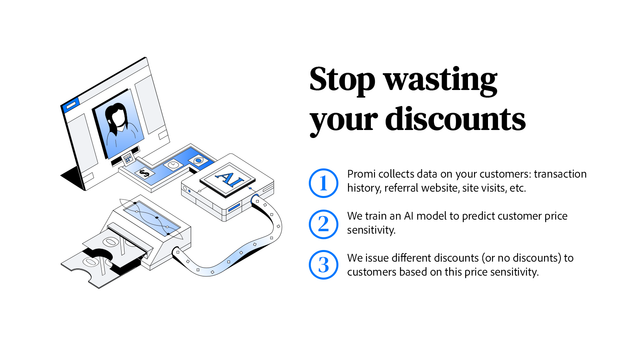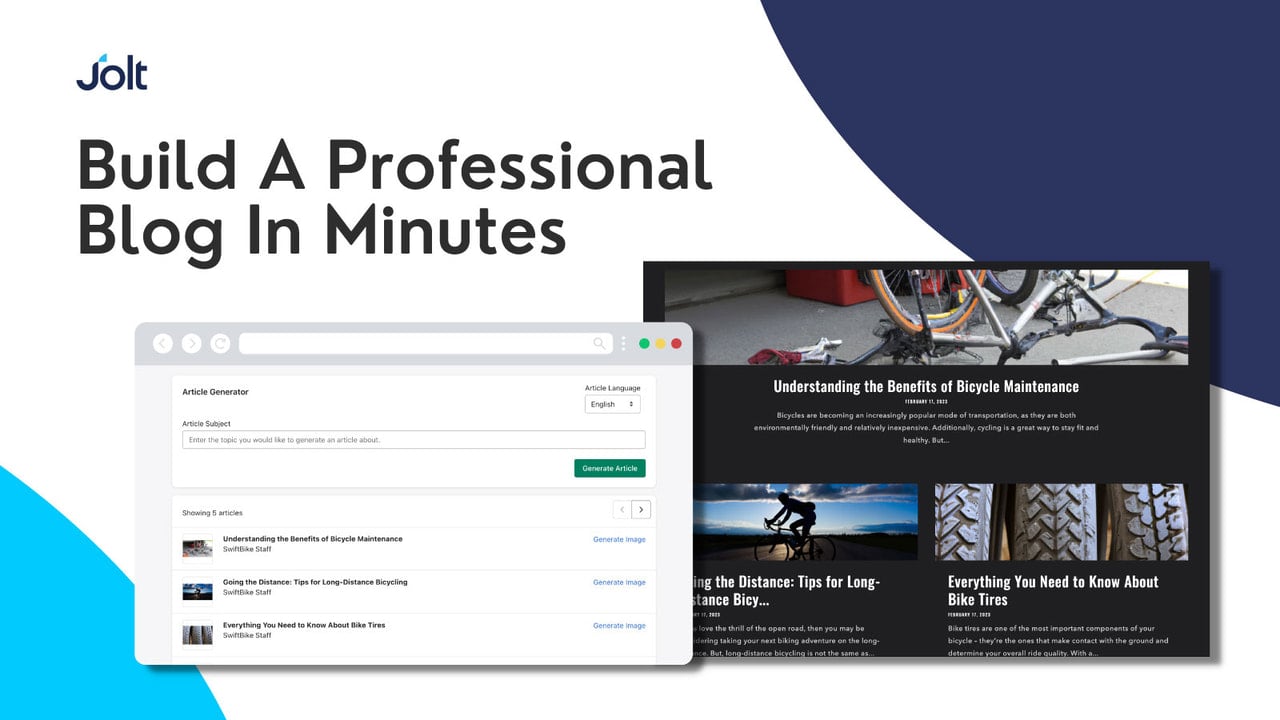In today's competitive digital landscape, search engine optimization (SEO) plays a crucial role in the success of online stores. Implementing effective SEO strategies can significantly improve a website's visibility in search engine results pages (SERPs), drive organic traffic, and ultimately boost sales. To achieve this, online store owners often rely on SEO plugins to streamline their optimization efforts. In this article, we will explore the importance of SEO for online stores, evaluate the best SEO plugins in the market, and provide a detailed overview of each plugin's features and benefits. Furthermore, we will discuss the installation and configuration process, as well as how to monitor and improve SEO using these plugins.
Understanding the Importance of SEO for Online Stores
Running an online store requires more than just having an appealing website and a great product selection. Without a strong SEO strategy, your target audience may struggle to find your store amidst the vast sea of competitors. SEO for online stores involves optimizing various elements of your website to improve its visibility in search engine rankings. By appearing on the first page of search results, you increase the chances of attracting organic traffic and potential customers to your store.
The Role of SEO in E-commerce
E-commerce websites heavily rely on online visibility to drive traffic and generate sales. SEO is a powerful tool that helps online businesses establish a strong online presence, gain higher rankings, and stand out from the competition. By optimizing your website for relevant keywords, improving site speed, enhancing user experience, and incorporating other SEO best practices, you create a solid foundation for long-term success in the ever-evolving digital world.
Key SEO Strategies for Online Businesses
Implementing effective SEO strategies is essential for online businesses to thrive. Here are some key strategies to consider:
- Keyword Research: Conduct thorough keyword research to identify high-volume and relevant keywords for your industry.
- On-Page Optimization: Optimize your website's meta tags, URLs, headings, and content with your chosen keywords.
- Site Speed and Performance: Improve your website's loading speed and overall performance to provide a seamless user experience.
- Mobile Optimization: Ensure your website is mobile-friendly and responsive to cater to the growing number of mobile users.
- Link Building: Build high-quality backlinks from reputable websites to increase your website's authority and credibility.
- User Experience: Enhance your website's navigation, design, and functionality to provide a positive user experience.
However, it's important to note that SEO is not a one-time effort. It requires continuous monitoring, analysis, and adjustment to stay ahead of the competition. Regularly updating your website's content, monitoring keyword rankings, and analyzing user behavior can help you identify areas for improvement and make necessary adjustments to your SEO strategy.
In addition to the strategies mentioned above, another crucial aspect of SEO for online stores is content marketing. Creating high-quality, informative, and engaging content not only helps attract and retain customers but also improves your website's visibility in search engine results. By regularly publishing blog posts, articles, and other forms of content related to your industry, you can establish yourself as an authority in your niche and drive organic traffic to your online store.
Evaluating the Best SEO Plugins
Choosing the right SEO plugin for your online store can make a significant difference in streamlining your optimization efforts and achieving better search engine rankings. There are several factors to consider when evaluating SEO plugins, including their features, ease of use, compatibility with your website platform, customer reviews, and overall performance.
Criteria for Choosing SEO Plugins
Before diving into the specifics of individual plugins, it's essential to understand the criteria for evaluating them:
- Feature Set: Look for plugins that offer comprehensive SEO features, including keyword analysis, on-page optimization, XML sitemap generation, and more.
- User-Friendliness: Choose plugins that are easy to install, configure, and navigate, even for users with limited technical expertise.
- Platform Compatibility: Ensure the plugin is compatible with your website platform, whether it's WordPress, Shopify, Magento, or others.
- Customer Reviews: Consider plugins with positive reviews and high ratings, as they are more likely to provide reliable functionality and support.
- Active Development: Opt for plugins that are regularly updated and supported by an active development team, ensuring compatibility with the latest SEO trends and search engine algorithms.
Top-Rated SEO Plugins in the Market
After careful evaluation, several SEO plugins have emerged as top contenders in the market. These plugins have consistently delivered exceptional results and received positive feedback from users:
One of the leading SEO plugins in the market is "Yoast SEO." With its comprehensive feature set, Yoast SEO offers a wide range of tools to optimize your website's SEO. It provides in-depth keyword analysis, allowing you to identify the most relevant keywords for your content. Additionally, Yoast SEO offers on-page optimization features, such as meta tag optimization and XML sitemap generation, to ensure your website is easily discoverable by search engines.
Another popular SEO plugin is "All in One SEO Pack." This plugin is known for its user-friendly interface, making it easy for beginners to navigate and configure. All in One SEO Pack offers a range of features, including XML sitemap generation, social media integration, and advanced canonical URLs. With its compatibility across various website platforms, including WordPress and Shopify, this plugin is a versatile choice for optimizing your online store's SEO.
Lastly, "SEOPress" is a highly-rated SEO plugin that has gained recognition for its exceptional performance. This plugin offers a comprehensive feature set, including advanced schema markup, redirection management, and Google Analytics integration. SEOPress also provides detailed reports and analysis, allowing you to track your website's performance and make data-driven SEO decisions.
When choosing an SEO plugin for your online store, consider these top-rated options and evaluate them based on your specific requirements. Remember to prioritize features, user-friendliness, compatibility, customer reviews, and active development to ensure you select the best plugin for your SEO needs.
Detailed Overview of Top SEO Plugins
Yoast SEO: Features and Benefits
Yoast SEO is one of the most popular SEO plugins available, known for its comprehensive feature set and user-friendly interface. This plugin offers a wide range of optimization tools, including keyword analysis, content analysis, XML sitemap generation, and social media integration. With Yoast SEO, you can easily optimize your website's meta tags, headings, URLs, and content to improve search engine rankings. The plugin provides real-time feedback and suggestions, ensuring your content meets the best SEO practices.
All in One SEO Pack: Features and Benefits
All in One SEO Pack is another top-rated plugin that offers powerful SEO features for online stores. This plugin provides a user-friendly interface and comes with essential features such as XML sitemap generation, title and meta tag optimization, image XML sitemap support, and social media integration. All in One SEO Pack is highly customizable, allowing you to fine-tune your SEO settings according to your specific requirements. The plugin also provides advanced features for e-commerce websites, such as Google Analytics support and WooCommerce integration.
SEOPress: Features and Benefits
SEOPress is a feature-rich SEO plugin that caters to the needs of both beginners and advanced users. This plugin offers a user-friendly interface, making it easy to optimize your website for search engines. SEOPress provides essential features such as XML and HTML sitemap generation, meta tag optimization, content analysis, and social media integration. It also offers advanced features like schema markup, redirection management, Google Analytics integration, and support for custom post types. SEOPress is highly customizable, allowing you to tailor your SEO settings to your specific requirements.
How to Install and Configure SEO Plugins
Installing and configuring SEO plugins is a relatively straightforward process. Here is a step-by-step guide to help you get started:
Step-by-Step Guide to Plugin Installation
1. Login to your website's admin dashboard.
2. Navigate to the Plugins section and click on "Add New".
3. Search for your chosen SEO plugin using the search bar.
4. Click on the "Install Now" button next to the plugin.
5. Once the installation is complete, click on the "Activate" button to activate the plugin.
Configuring Your SEO Plugin for Optimal Performance
After activating your SEO plugin, it's crucial to configure its settings for optimal performance. The configuration process may vary depending on the plugin you choose. However, most plugins provide a user-friendly interface and step-by-step instructions to guide you through the process. Here are some general settings you should consider:
- Enter your website's title and meta description.
- Set up XML sitemaps and submit them to search engines.
- Configure social media integration for seamless sharing of your content.
- Connect your plugin to Google Analytics for detailed website analytics.
- Enable/disable specific features according to your preferences.
Monitoring and Improving Your SEO with Plugins
Sustaining a successful SEO strategy requires continuous monitoring and improvement. SEO plugins offer valuable insights and tools to help you track your website's performance and make informed optimization decisions.
Understanding SEO Metrics and Reports
SEO plugins provide detailed metrics and reports to help you understand how your website is performing in search engine rankings. These metrics may include organic traffic, keyword rankings, backlink data, site speed, and more. By regularly analyzing these metrics, you can identify areas for improvement and adjust your optimization efforts accordingly.
Regular SEO Audits for Continuous Improvement
Performing regular SEO audits using your chosen plugin allows you to identify and rectify any issues that may be impacting your website's performance. This involves analyzing your website's on-page optimization, keyword usage, link profile, site speed, mobile-friendliness, and other crucial factors. Implementing the necessary changes based on audit findings can significantly enhance your website's visibility and maximize its potential to attract organic traffic.
In conclusion, the best SEO plugins for online stores can greatly simplify the optimization process and help you achieve better search engine rankings. By understanding the importance of SEO, evaluating the top plugins in the market, and learning how to install, configure, and monitor these plugins, you can effectively optimize your online store and attract a steady flow of organic traffic. Remember, SEO is an ongoing process, and continuous improvement is key to staying ahead in the competitive e-commerce landscape.Ready to elevate your Shopify store's SEO and user experience? Let Owlmix be your guide! With a curated directory of innovative Shopify apps, Owlmix offers the tools you need to enhance every aspect of your online business. From marketing analytics to inventory sync, find apps that align perfectly with the strategies discussed in this article. And with Owlfred, your wise owl companion, you'll get engaging insights to help you choose the best apps for your store. Don't miss out on the opportunity to optimize your store and attract more organic traffic. Find your next Shopify app today and watch your e-commerce success take flight!

















